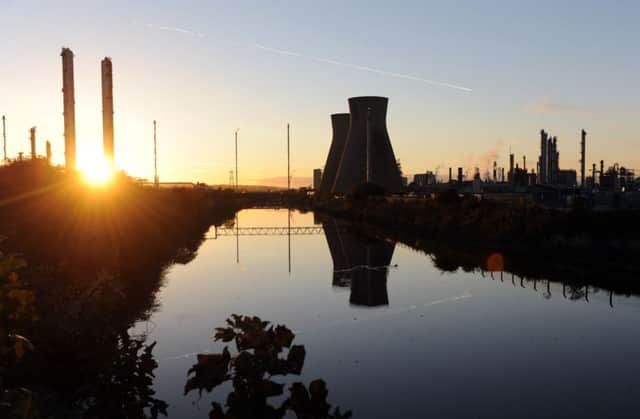Leaders: Grangemouth fracking | Julian Assange


The recent report on the potential resource in what geologists call the Midland valley of central Scotland, which showed that gas deposits there are likely to be much smaller than those in northern and southern England, had been assumed to make exploration and exploitation much less likely.
But Ineos’s purchase of BG Group’s 51 per cent stake in the licence, and the fact that Dart Energy’s 49 per cent share is being bought as part of a take-over of the company by IGas Energy, a firm with experience of drilling for shale gas, says that there is significant commercial interest in pushing ahead.
Advertisement
Hide AdAdvertisement
Hide AdIneos’s move is an unusual departure from its established business model. It is a petrochemical processor and not a gas producer. Its Grangemouth plant, however, has a particular problem – a declining supply of the North Sea gas which it was built to convert into chemicals.
It had been thought that its decision to build a terminal to import American shale gas to substitute for North Sea gas solved the problem, particularly as this gas is likely to be about half the price it pays for its existing supply, even when the costs of shipping it across the Atlantic are factored in.
But evidently Ineos believes that it needs to do more. If shale gas can be produced on its Grangemouth doorstep, and for a price that is at least competitive with its existing sources, then that would certainly go a long way to securing the future of the plant.
This, however, would pose a big problem for the politicians who battled so hard to provide Ineos with what it needed to prevent the installation’s closure and the disastrous (for the Scottish economy) loss of thousands of jobs during the recent industrial dispute with the Unite trade union.
The licence area, unlike the shale deposits being exploited in America, is densely populated, including Falkirk and Stirling. Green campaigners are fiercely opposed to shale gas exploitation and public opinion generally is highly suspicious. People are worried about earthquakes and pollution of water supplies.
Reassuring them that there is little risk of environmental damage will be a tall order. They will have to weigh that against the possible economic gains in secured long-term jobs. So will politicians when they come to consider the necessary planning applications. This is clearly going to be a difficult and long debate that will certainly get heated at times. Hopefully, cool heads will prevail.
End to stand-off would be welcome
ONLY one thing is certain about WikiLeaks founder Julian Assange – nothing he says can ever be taken at face value. So when he gives a press conference to say he is soon going to leave Ecuador’s London embassy, where he has been holed up for two years, it probably does not mean he is about to walk out the front door.
The story so far is that Mr Assange is wanted by Swedish police for questioning over alleged sex assaults on women and, like any other such suspect, will be arrested by British police for extradition to Sweden if they have the chance. The waiting coppers, which have so far cost the British taxpayer about £6.4 million, he terms a “siege”.
Advertisement
Hide AdAdvertisement
Hide AdHe claims the Swedish interest in him is but a ruse, the real purpose allegedly being to hand him over to American authorities who want to question him over the leaking of secret United States government documents.
In turn, the authorities reckon Mr Assange’s claims are the real ruse to prevent the possibility of trial and imprisonment in Sweden. Meanwhile, Ecuador’s government appears to have tired of Mr Assange living off its hospitality and just wants him gone but isn’t prepared to evict him. If you are not confused, you probably should be.
Opinions divide over whether Mr Assange is a hero or villain but converge on general agreement that he is a narcissist. He may be just trying to re-energise flagging public interest in him, flying kites and hoping for a deal, or creating a smokescreen for something else altogether. Whatever is going on, an end to this expensive stand-off in embassy-land would be welcome.